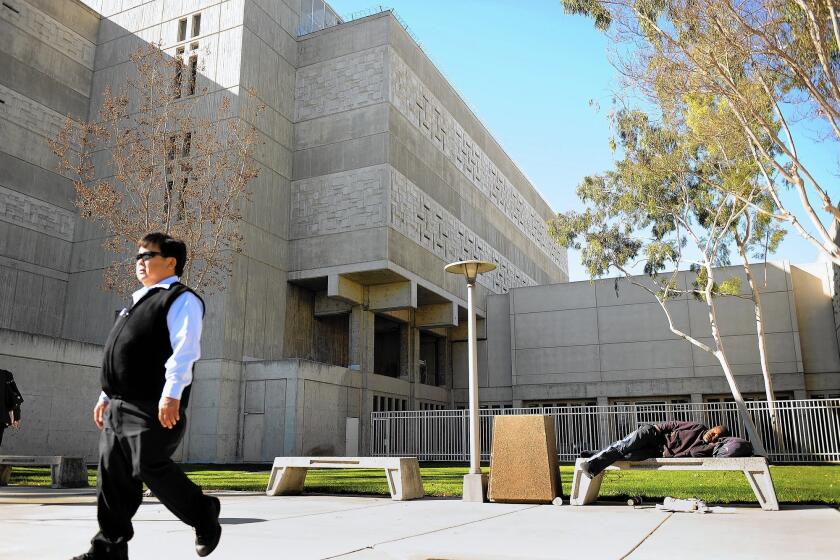Chapman University and local nonprofit provide course to formerly incarcerated
Chapman University and a local nonprofit are teaming up to provide courses to the formerly incarcerated to reduce the likelihood of their returning to jail.
The course is part of Underground GRIT’s reentry program. The Orange-based nonprofit seeks to help formerly incarcerated people reenter the community through providing education, vocational training, mental health support services and advocacy.
The eight-week certificate course could be an important piece of the nonprofit’s mission as correctional education programs have been shown to reduce recidivism by 43%.
“The reality is that when you are released and you are on terms like probation or parole then there’s a lot of restriction on the things you can do, and violating any of those terms, even if it’s like violating an 8 p.m. curfew, can lead you back in jail,” said Sharon Tang, Underground GRIT program manager. “It’s like tip-toeing through a landmine field.”
The class is taught by Dr. Victoria Carty, an associate professor of sociology at Chapman. Her research has generally focused on social movements, community engagement and immigration and criminal justice reform.
The first eight-week course Carty has been teaching will end early next month. All of the 13 students in the class have served time in either jail, prison or juvenile hall.
The program focuses on young adults in their early 20s, many of whom had a difficult time going through the education system.
“A lot of them say things like, ‘You know, growing up I always thought college was for other kids not me,’” Carty said. “‘Not for poor people, not for brown people, not for Black people ... that’s for somebody else, not me.’
”... So let’s reimagine how we can do education in a different way. And they’re young enough to be receptive to that.”
The class focuses on social stratification, largely centering on class and race issues. Carty teaches the students to apply sociological theories and concepts to their own experiences with the justice system.
The class also provides students with some of the basic skills needed to be a college student. The assignments and discussions are of the same rigor as any other Chapman course.
The course currently offers a certificate upon completion, but Tang said they are aiming to offer course credit once the nonprofit can attain adequate funding.
“Education is a right, not a privilege,” Tang said. “Fair treatment within the education system is not something that only some people get as a treat, it’s something that all people should have.”
Carty said she is hoping to offer a new course each semester and for the 13 current students to continue with the classes each semester. Carty said Chapman has agreed to pay for the students to receive college credit once the school is out of the financial slump caused by the pandemic.
“The certificate course is not the plan at all,” Carty said. “It’s for them to have a legitimate transcript saying I completed a college course. We just can’t do that right now.”
The briefs were filed on Dec. 24 in response to a Dec. 11 order from Judge Peter Wilson.
There will be a chance for other students to join the classes. Underground GRIT, which was founded in 2019, has a waiting list of interested applicants who must take part in an interview and application process before getting into the program.
“A big part to the ultimate goal, and this is how it all started, is Chapman students would be learning side-by-side with the Underground GRIT students,” Carty said.
She continued: “Chapman, I’m sure you’re aware, has a reputation ... as kind of a country club and we cater to kind of rich white kids. That’s no secret, for them to be learning from people that come from very different backgrounds, and you know the stereotypes about Chapman students that can be broken down when they enter into these classrooms with the Underground GRID students.”
The reentry program will be needed as more inmates are released from Orange County jails due to COVID-19.
Hundreds have been released since the beginning of the pandemic, and a judge recently ordered the Sheriff’s Department to reduce the county jail population by a half.
While Sheriff Don Barnes is fighting the order, the state appellate court denied his request this week for an immediate stay of the Dec. 11 order. The appeal remains under consideration.
All the latest on Orange County from Orange County.
Get our free TimesOC newsletter.
You may occasionally receive promotional content from the Daily Pilot.





